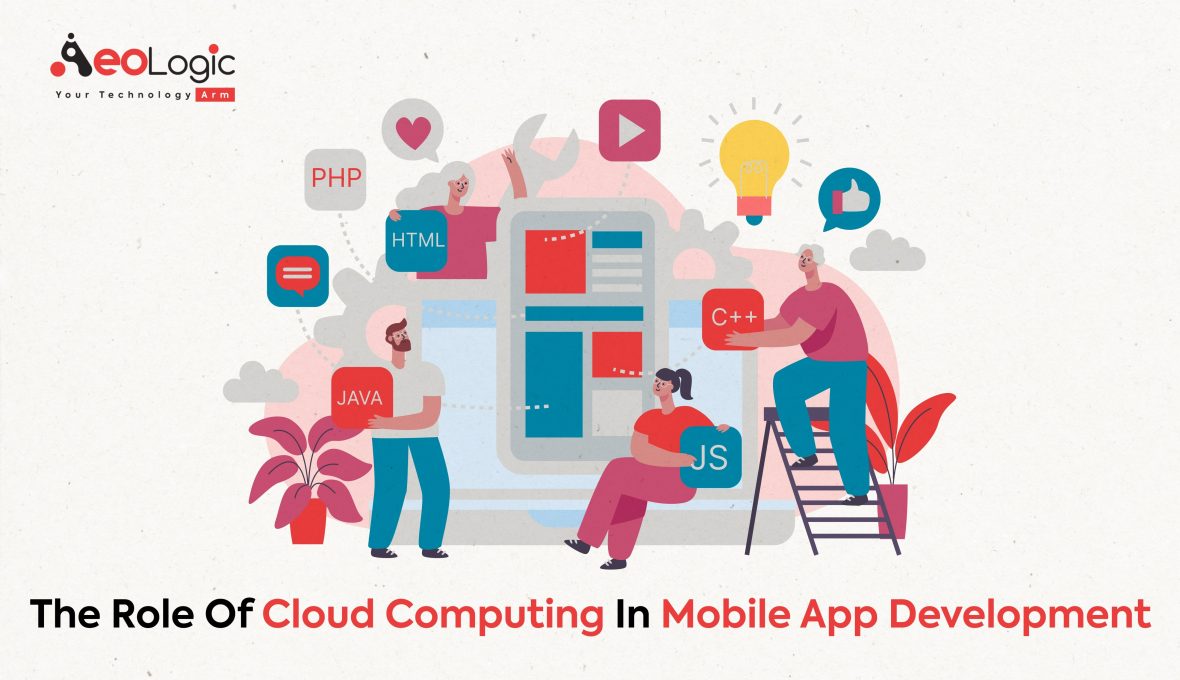Mobile applications have rapidly become an essential part of our daily lives. Mobile apps play a pivotal role in shopping, banking, entertainment, or productivity. Behind this ever-growing phenomenon is the driving force of cloud computing, revolutionizing the way apps are developed, deployed, and scaled. This article delves deep into the role of cloud computing in mobile app development and how it’s reshaping the digital landscape.
What is Cloud Computing?
Before diving into specifics, it’s crucial to understand what cloud computing is. At its core, cloud computing provides a way for developers and businesses to access computing power and storage without owning or maintaining physical servers. Imagine having an omnipresent force that you can tap into anytime, anywhere, without the hassle of infrastructure management.
Also Read: The Role of Blockchain in Web and App Development
Key Benefits of Integrating Cloud with Mobile App Development
- Cost-Effective Development: The role of cloud computing in mobile app development is synonymous with cost savings. Developers can avoid the high costs of hardware acquisition and maintenance. Pay-as-you-go models allow businesses to only pay for what they use.
- Swift Deployment and Scalability: Launching an app becomes faster since there’s no server setup delay. Moreover, the cloud scales automatically, accommodating spikes in user traffic without manual intervention.
- Enhanced Collaboration: Teams spread across the globe can work together seamlessly. Updates, changes, and testing happen in real-time, accelerating the app development process.
- Security and Compliance: Top cloud providers invest heavily in state-of-the-art security, ensuring data protection. Regular audits and adherence to global compliance standards further bolster trust.
- Continuous Integration and Continuous Deployment (CI/CD): The role of cloud computing in mobile app development extends to streamlining updates and new feature releases. With cloud platforms, CI/CD pipelines can be set up to automatically build, test, and deploy applications, ensuring that users always have access to the latest and most stable version of the app.
- Data Analytics and Insights: Cloud platforms often come with built-in analytics tools. These tools allow developers to gather real-time insights into app performance, user engagement, and potential areas of improvement. With this data at their disposal, businesses can make informed decisions, optimize app performance, and tailor user experiences.
Are You Looking for App Development Company?
The Role of Cloud Computing in Mobile App Development
The convergence of cloud computing with mobile app development has ushered in a new era of innovation and efficiency. As we peel back the layers of this synergy, it’s clear that cloud technology is redefining the rules and raising the bar in app development.Lets how
Backend as a Service (BaaS)
Integrating the Backend as a Service eliminates the conventional complexities of backend development. Developers can now focus solely on the app’s front end, ensuring a smoother user interface and better overall experience.
- Quicker development cycles.
- Easier integration of services like databases, authentication, and push notifications.
Multi-Platform Development
Cross-platform development has been a significant challenge for developers. However, with cloud-based tools and frameworks, creating apps compatible with various operating systems is a breeze.
- Uniform functionality and appearance across devices.
- Simplified codebase management.
Real-time Data Synchronization
In a world that’s moving at lightning speed, real-time data synchronization is no longer a luxury; it’s a necessity. Cloud computing ensures that app data is consistent across all devices, providing users with timely and relevant information.
- Gaming apps where player data needs constant updates.
- Collaboration tools where real-time data sharing is pivotal.
Enhanced Storage Solutions
Modern apps often require storing vast amounts of data. Cloud storage solutions not only provide the necessary space but also ensure that data remains secure and easily accessible, enhancing the app’s performance and reliability.
- Storing vast amounts of user-generated content.
- Efficient backup and recovery systems.
- Smooth data retrieval and upload, enhancing user experience.
Analytics and Performance Monitoring
Understanding user behavior is crucial for app optimization. With cloud-driven analytics, developers can gain invaluable insights into user interactions, allowing them to refine the app based on real-world data.
- User behavior and interaction with the app.
- Identifying bottlenecks and areas for improvement.
- Continuous performance monitoring for optimal app health.
Advanced Integration Options
The cloud opens the door to an array of advanced functionalities. With easy integration options, developers can imbue their apps with the latest technological advancements, ensuring they remain competitive and relevant.
- Integrate advanced features such as AI, machine learning, and chatbots.
- Seamless connection with third-party apps and services.
The Future of Cloud Computing in Mobile App Development
As we peer into the future, the role of cloud computing in mobile app development seems only to grow more integral. With the advent of 5G, Internet of Things (IoT), and Augmented Reality (AR)/Virtual Reality (VR) applications, the demand for robust, scalable, and agile backends will skyrocket. The cloud, with its ever-evolving services and capabilities, is poised to meet these challenges head-on.
Also Read: The Pros and Cons of Cross-Platform Mobile App Development
Final Thoughts
In this dynamic digital age, where agility and innovation are paramount, cloud computing emerges as a beacon for mobile app developers. The seamless integration of the cloud into app development processes guarantees not only enhanced user experiences but also paves the way for groundbreaking apps that were once deemed impossible. As we continue to embrace this digital transformation, one thing remains clear: The role of cloud computing in mobile app development is not just influential; it’s revolutionary.
For an in-depth understanding and hands-on experience with cloud computing in mobile app development, connect with Aeologic Technologies, where innovation meets expertise.
Frequently Asked Questions
How does cloud computing impact the cost of mobile app development?
Cloud computing reduces costs by eliminating the need for physical infrastructure. Developers use pay-as-you-go models, paying only for resources they consume.
Is data stored in cloud-based mobile apps secure?
Yes, leading cloud providers prioritize security with encryption, firewalls, and regular audits. However, developers should always review the security features of their chosen platform.






